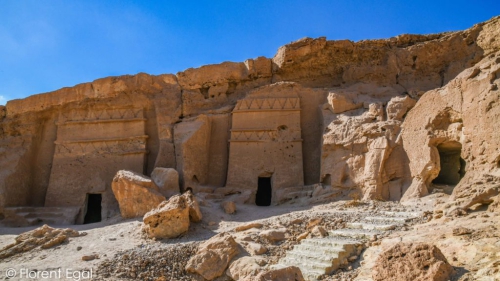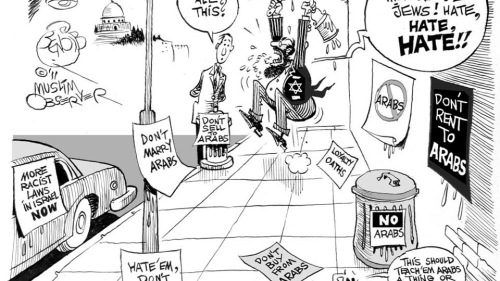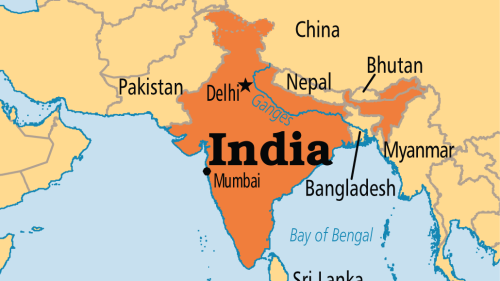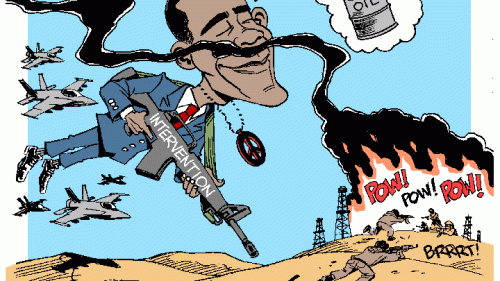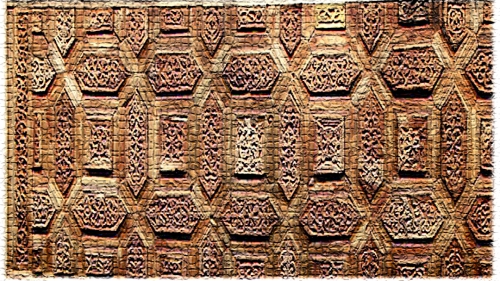The Democratic Process in The Rightly Guided Caliphate
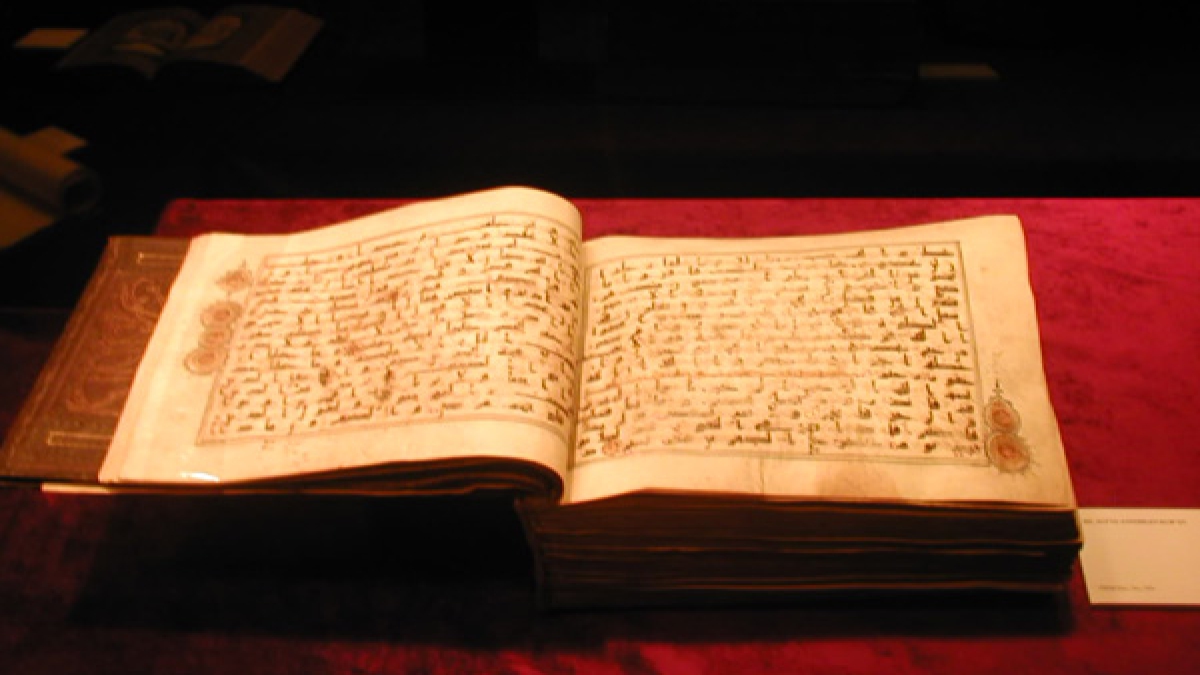
According to the Qur'anic directive of Amruhum Shura Baynahum (Their system is based on their consultation, (42:38)), the details of the methodology adopted by the Prophet (sws) and his companions for the participation of the Muslims in the affairs of the state in their own times, keeping in view their social conditions, are based on the following two points:
Firstly, Muslims shall be consulted in the affairs of state through their leaders in whom they profess confidence. According to Sahih Bukhari:
- When the Muslims at the Prophet's behest consented to free the prisoners of Hawazin, the Prophet said: I could not know who among you has shown his consent and who among you has not. Therefore, go back, and send your leaders that they may inform us. (Kitabu'l-Ahkam)
It is narrated about Abu Bakr (rta):
- Then if he could not find a practice of the Prophet in this matter, he would gather the influential among his people and consult them, and when they would reach a conclusion, he would decide according to it. (Darmi, Muqaddamah, p. 53)
During the time of the Prophet (sws), the tribal chiefs held this position of trust. The people of the tribes of Aws, Khazraj and Quraysh professed confidence in every sense of the word in their respective leaders. Indeed, these leaders were not elected to this position nor was an election needed in the social conditions which existed at that time. It was, in fact, because of their social status, intellect and experience that their people turned to them in all the political and collective affairs. Before the advent of Islam, it was their tribes' complete faith in them which conferred this position on them and this state continued even after they accepted Islam. However, before accepting Islam, a person could say that his tribal chief had seized power by force and that he was not in a position to show his mistrust in him, but after accepting faith every person from among the Muslim public could express in front of the Prophet (sws) his lack of confidence in his chief. If the majority in a tribe had expressed their lack of confidence in their leader, he could certainly not have retained his position.
The Prophet (sws) in his own times made all the important decisions after consulting these tribal chiefs and during the time of the Rightly Guided Caliphate also, the position of trust commanded by them continued.
While narrating the proceedings of a Shura called to session in the time of the Caliph Umar's (rta) rule to decide the fate of the conquered lands of Syria and Iraq, Qadi Abu Yusuf says:
- The people said: you should now seek formal consultation. At this, he consulted the early Muhajirun and there existed a difference in their opinions. 'Abdu'l Rahman Ibn 'Awf (rta) maintained that the land should be rightfully distributed among them, while 'Uthman (rta), 'Ali (rta), Talhah (rta) and Ibn 'Umar (rta) were in agreement with 'Umar's (rta) view. Then he called ten people from the Ansar: five from the leading people of the Aws and five from those of the Khazraj. (Abu Yusuf, Kitabu'l-Khiraj, Fasl fi'l Fay wa al-Khiraj, [1302 AH], p.27)
'Umar (rta) while explaining his own position in relation to the members of the Shura said:
- I have bothered you with the burden of coming here so that you can help me in my responsibilities owing to this position you have entrusted me with. I am a human being just like you and do not want that you follow my desires in these affairs. (Abu Yusuf, Kitabu'l-Khiraj, Fasl fi'l Fay wa al-Khiraj, [1302 AH], p.27)
The manner in which such sessions would be held was that first a person would loudly announce: 'Al-Salah Jami'ah': That is people should gather for prayer. When people would gather, 'Umar (rta) would pray two Rak'ats. He would then deliver a brief speech and would table the agenda on which he wanted to consult the people. The issues of the conquered lands of Syria and Iraq and the participation of the Caliph himself in the battle of Nihawand were discussed and settled in these meetings. Similarly, the issues of the salary of soldiers, the appointment of representatives, the organization of offices, the freedom of trade for other nations and their taxes were all decided in these meetings. Biladhuri writes that there was another group of the leaders of the Muhajirun (the ruling party) who would see to the day to day affairs of the country and would regularly assemble at the Masjid-i-Nabawi for this purpose:
- In the Masjid-i-Nabawi, sessions of the Muhajirun would be convened in which 'Umar would sit and present to them all the happenings and events reported to him from the various parts of his empire. (Biladhuri, Futuhu'l Buldan, [Qum: Manshurat al-Arummiyyah, 1404 AH], p. 266)
Secondly, the tradition was established that among the various groups present in an Islamic State, only that group assumed its political authority which enjoyed the confidence of the majority of the Muslims.
Before his death, the Prophet (sws) clarified that the Quraysh would be his successors and not the Ansar:
- Our political authority shall remain with the Quraysh. In this matter, whoever opposes them as long as they follow Islam, Allah shall cast him face down in Hell. (Bukhari: Kitabu'l-Ahkam)
Consequently, he told the Ansar:
- In this matter, bring forward the Quraysh and do not try to supersede them. (Talkhisu'l-Hubayr, vol.2, p. 26)
The Prophet (sws) stated thus the reason for the decision he had declared:
- People in this matter follow the Quraysh. The believers of Arabia are the followers of their believers and the disbelievers of Arabia are the followers of their disbelievers. (Muslim, Kitabu'l-Imarah)
Thus, the Prophet (sws) made it very clear that since the majority of the Arabian Muslims professed confidence in the Quraysh, they were solely entitled to take charge as the rulers of Arabia in the light of the Qur'anic Directive: Amruhum Shura Baynahum, and that they would be passed on the political authority not because of any racial precedence or superiority, but only because virtue of this position.
Those who have studied the history of the Arabs know that before the advent of the Prophet (sws), the Quraysh were at the helm of the state's affairs and their leaders were considered as the leaders of the Arabs. After the battles of Badr and Uhud, though several of their leaders had been killed, yet in the capacity of a party they enjoyed the confidence of all the Arabs. All their prominent people who had accepted faith were present in Madinah and many of them had distinguished themselves in the service of Islam. It was these people who were there called the Muhajirun and after the general acceptance of faith by the Arabs their leaders enjoyed the same confidence as the influential of Arabs did in the pre-Islamic era. Hence, elections were not needed to confirm this reality. There was there no room for a difference of opinion in the fact that the Quraysh had the popular support of the masses behind them and that no tribe could challenge this position of theirs.
There is no doubt that as far as Madinah was concerned, the Ansar under Sa'ad Ibn 'Ubadah and Sa'ad Ibn Mu'adh, the respective leaders of Aws and Khazraj, had more influence among the local population. They were no less than the Muhajirun as regards the services they had rendered for the cause of Islam. They had offered their unconditional support and help to the Muhajirun when the latter had migrated to Madinah. Together with them, they had fought gallantly in the battles of Badr, Uhud, Ahzab and Hunayn. The relationship of brotherhood and fraternity they had established with them was an exceptional one. Particularly, the way they had offered them monetary assistance -- just to please the Almighty of course -- bears no parallel in history. Had the Islamic State been confined only to Madinah, it can be said with certainty that after the Prophet (sws), they would have assumed political authority. But after the conquest of Makkah, when a large number of Arabs of other territories accepted Islam, the political scene change drastically. The extent of confidence commanded by the Muhajirun of the Quraysh out-proportioned that of the Ansar.
However, there was still a chance that owing to the perfectly natural emotions of tribal affiliation and owing to the spirit of outdoing each other in serving Islam, the Ansar might have come forward and challenge the Quraysh. Particularly, the fact that they commanded more influence locally in Madinah could have caused them to put an undue trust in their strength. If such a situation, God forbid, had arisen the Munafiqun (hypocrites) would have certainly tried to benefit from it, and keeping in view the social conditions which prevailed at that time, only a war could have settled their dissension.
Therefore, the Prophet (sws) sensing that this untoward situation might arise, decided once and for all the fate of this matter in his own life in the presence of Sa'ad Ibn 'Ubadah, the leader of the Ansar. He is said to have said:
- After me the political authority (imamat) shall be transferred to the Quraysh. (Musnad Ahmad Ibn Hambal, vol. 3, p. 183)
Consequently, in the Thaqifah of Banu Sa'idah, when the leaders of the Ansar were delivering stirring speeches to prove their entitlement to the leadership of the Arabs, Abu Bakr reminded them of the Prophet's above mentioned decision in the following words:
- O Sa'ad! You know very well that the Prophet (sws) had said in your presence that the Quraysh shall be given the Khilafat because the noble among the Arabs follow their nobles and their ignobles follow their ignobles. Sa'ad replied: What you say is correct, we are your advisers and you are our rulers. (Musnad Ahmad Ibn Hambal, vol. 1, p.5)
In another report, the words are:
- The people of Arabia are not aware of anyone's political leadership except that of the Quraysh. (Musnad Ahmad Ibn Hambal, vol 1. P. 56)
After this verification by Sa'ad Ibn 'Ubadah, the chief of the Ansar, it became clear to those present that they had strayed from the right course in the heat of the discussion and that the right course was only to elect their ruler from the group which held majority in the public; that whoever would be elected would be the Khalifah of the Muslims and it would be obligatory to obey him; that this course had been outlined by the Prophet (sws) himself and they should not in any case adopt a different one.
The Rightly Guided Caliphate (Khilafat-i-Rashidah) was also founded on the basis of this decision declared by the Prophet (sws). When the leaders of the Ansar submitted to it, 'Umar (rta), considering the delicacy of the situation which had arisen in the Thaqifah, proclaimed the rule of Abu Bakr (rta) being sure of the fact that the leaders of the Quraysh would not differ with him and would, in fact, endorse his step. Later, he himself stated this reason for his step and warned that no one should dare present it as a violation of the Qur'anic principle: Amruhum Shura Baynahum.
- No one among you should have the misconception that the oath of allegiance to Abu Bakr took place suddenly. No doubt, the oath was pledged in the this way, but the Almighty protected the Muslims from its evil consequences [which might have arisen] and remember! there is none among you like Abu Bakr, whose greatness cannot be surpassed. Now if a person pledges an oath of allegiance to someone, without the opinion of the believers, no one should pledge allegiance to him as well as to whom he [himself] pledged allegiance because by this both of them shall present themselves for execution. (Bukhari, Kitabu'l-Hudud)
At the time of the death of Abu Bakr (rta) also, the general confidence enjoyed by the Muhajirun of the Quraysh persisted. Since no other tribe of the Arabs including the Ansar had challenged this position, they continued to hold their position of authority, and there was no need to turn to the general public in this regard. Therefore, the leaders of the Muhajirun of the Quraysh nominated 'Umar (rta) as the new ruler and both the Ansar and the Muhajirun -- the two big tribes of the Muslims -- accepted the appointment. Consequently, without any difference of opinion, 'Umar (rta), in direct accordance with the Islamic constitution, assumed the position of Khilafat. Ibn Sa'ad reports:
- When ill-health overtook Abu Bakr and the time of his death approached, he summoned 'Abdu'l-Rahman Ibn 'Awf and said: 'Tell me about 'Umar Ibn Khattab'. 'Abdu'l-Rahman replied: 'You are asking me about something of which you know better'. Abu Bakr said: 'Although [this is correct yet I want your opinion]'. 'Abdu'l-Rahman answered: 'By God! he is even better than the opinion you hold about him'. Then he [Abu Bakr] called 'Uthman Ibn 'Affan and asked him: 'Tell me about 'Umar Ibn Khattab'. 'Uthman replied: 'You know him better than us'. Abu Bakr said: 'Still! O Abu Abdullah! [I want your opinion]'. [At this] 'Uthman answered: 'Indeed, in my opinion his inner self is better than his outer self and no one among us can parallel him'. (Ibn Sa'ad, Al-Tabaqatu'l-Kubra, vol. 3, [Beirut: Dar Sadir, 1960], p. 199)
Ibn Sa'ad mentions that Abu Bakr (rta), besides these two, consulted all the prominent leaders of the Ansar and the Muhajirun:
- And he, besides these two, consulted Abu'l-A'war Sa'id Ibn Zayd and Usayd Ibn Al-Hudayr as well as other big leaders of the Ansar and the Muhajirun, so Usayd said: 'Indeed after you O Abu Bakr! I consider him the best. He is happy on happy occasions and sad on sad occasions. His inside is better than his outside. No one is more suited to bear the burden of this Khilafat'. (Ibn Sa'ad, Al-Tabaqatu'l-Kubra, vol. 3, [Beirut: Dar Sadir, 1960], p. 199)
After this Ibn Sa'ad reports that some people differed from Abu Bakr's (rta) opinion but he satisfied them. He then called 'Uthman (rta) and said:
- Write: In the name of Allah the Most Gracious, the Ever Merciful. This is the will of Abu Bakr Ibn Abi Quhafah which he made at the end of his worldly life, when he is about to leave it and at the beginning of his next life when he is about to enter it, at a time when disbelievers accept faith, the defiant express belief and liars speak the truth. I make 'Umar Ibn Khattab your Khalifah. Therefore, listen to him and obey him. (Ibn Sa'ad, Al-Tabaqatu'l-Kubra, vol. 3, [Beirut: Dar Sadir, 1960], p. 200)
This letter was sealed. According to Abu Bakr's (rta) directive, 'Umar Ibn Khattab (rta) and Usayd Ibn Sa'id (rta) accompanied 'Uthman (rta), who took the letter out to the people and said:
- Will you pledge allegiance to the person in whose favour a will has been made in this letter. The people said: 'Yes'. (Ibn Sa'ad, Al-Tabaqatu'l-Kubra, vol. 3, [Beirut: Dar Sadir, 1960], p. 200)
Ibn Sa'ad reports:
- All accepted and agreed to pledge allegiance to 'Umar. Then Abu Bakr called 'Umar in solitude and gave him whatever advice he wanted to. (Ibn Sa'ad, Al-Tabaqatu'l-Kubra, vol. 3, [Beirut: Dar Sadir, 1960], p. 200)
When 'Umar Ibn Khattab (rta) was severely wounded and his death looked imminent, the political situation was still unchanged. The Muhajirun of the Quraysh still enjoyed the majority mandate of the Muslims. Therefore, according to the Islamic constitution only an election of a leader by the majority group was required. The people who held responsible positions asked 'Umar Ibn Khattab (rta), as reported by Ibn Sa'ad:
- Will you not leave a will for us? Will you not appoint a Khalifah for us? (Ibn Sa'ad, Al-Tabaqatu'l-Kubra, vol. 3, [Beirut: Dar Sadir, 1960], p. 343)
'Umar Ibn Khattab (rta), however, adopted another way: Instead of appointing a Khalifah by consulting the Shura members, as had been done by Abu Bakr (rta) , he entrusted the matter to six prominent leaders:
- I have deliberated on the matter of Khilafat and have reached the conclusion that there is no difference among the people in this affair as long as it is one of you. If there is any difference, it is within you. Therefore, this matter is entrusted to the six of you: 'Abdu'l-Rahman, 'Uthman, 'Ali, Zubayr, Talhah and Sa'ad. (Ibn Sa'ad, Al-Tabaqatu'l-Kubra, vol. 3, [Beirut: Dar Sadir, 1960], p. 344)
What he meant was that since the people only looked upon them for Khilafat and if they agreed to accept anyone among them as Khalifah, the people would not differ with their decision.
He further said:
- Rise, consult and make anyone amongst yourselves as the ruler. (Ibn Sa'ad, Al-Tabaqatu'l-Kubra, vol. 3, [Beirut: Dar Sadir, 1960], p. 344)
However, since there was a chance that some miscreants might create disorder or that these six might prolong matters, 'Umar Ibn Khattab (rta) appointed Ansar as the custodians over the six because, being a minority group, they were not a party to the whole affair. Ibn Sa'ad narrates through Anas Ibn Malik:
- 'Umar Ibn Khattab just before his death summoned Abu Talhah Ansari. When he arrived, 'Umar said: 'Abu Talhah take fifty men from your tribe Ansar and go to these people of the Shura. I reckon they will be present at the house of someone amongst themselves. Stand at their door with your comrades and let no one go inside and do not give them more than three days for electing a leader. (Ibn Sa'ad, Al-Tabaqatu'l-Kubra, vol. 3, [Beirut: Dar Sadir, 1960], p. 364)
'Umar Ibn Khattab (rta) instructed them in the following words about the leaders of the Ansar:
- Call the leaders of the Ansar to you, but they have no share in political authority. (Ibn Qutaybah, Al-Imamah wa Al-Siyasah, vol. 1 [Beirut: Daru'l-Ma'arifah], p. 28)
Ibn Sa'ad reports that when all of them had assembled, 'Abdu'l-Rahman Ibn 'Awf (rta) opined that three of them should withdraw themselves in favour of three others. Consequently, Zubayr (rta) withdrew in favour of 'Ali (rta), and Talhah (rta) and Sa'ad (rta) withdrew in favour of 'Uthman (rta) and 'Abdu'l-Rahman Ibn 'Awf (rta) respectively. Then he asked 'Uthman (rta) and 'Ali (rta) to give him the right to decide, if he withdraws: When both agreed, he said to 'Ali (rta):
- You have the honour of being among the earliest who accepted Islam as well as being a relation of the Prophet of Allah. By God! If you are entrusted with Khilafat, promise that you will rule with justice and if 'Uthman (rta) is made the Khalifah, you shall listen to him and obey him. (Ibn Sa'ad, Al-Tabaqatu'l-Kubra, vol. 3, [Beirut: Dar Sadir, 1960], p. 339)
After 'Ali (rta) agreed, he turned to 'Uthman (rta) and repeated what he had said; when both showed their approval, he said:
- O 'Uthman! extend your hand! When he did so, 'Ali and others pledged their oath of allegiance to him. (Ibn Sa'ad, Al-Tabaqatu'l-Kubra, vol. 3, [Beirut: Dar Sadir, 1960], p. 339)
There can be two opinions about the Khilafat of 'Ali (rta). This difference however, is not about any basic principle, but about whether the Muhajirun of the Quraysh elected their leader with freedom or under coercion. This discussion is irrelevant to our topic. Therefore, even if it is left out, the fact remains that throughout the period of the Rightly Guided Caliphate, power remained with those who commanded the majority support of the Muslims ie, the Muhajirun of the Quraysh and that their prominent leaders elected the ruler. This is also a reality that all the four Caliphs were elected basically by the same principle. They were elected from the leaders of the majority group and all the leaders of the other groups were also consulted in this election. The only difference is that when they agreed on 'Umar (rta), Abu Bakr (rta) himself enforced this decision, and 'Umar (rta), when he found that their difference was about six eminent leaders, entrusted the responsibility of electing one from among the six on the six person themselves.
From this discussion it is evident that:
(1) In an Islamic state the existence of political parties is perfectly legal and, in fact in the times of the Prophet (sws) and the Rightly Guided Caliphate, they formed an important constituent of the political system.
(2) If today elections are held to ascertain which party enjoys the general support then it cannot be considered against the purport of Islam.
(3) If the traditions of the early Islamic era are kept in consideration, the head of the government of an Islamic State should not be elected directly by the general masses; instead his election should take place in the parliament through their representatives.






